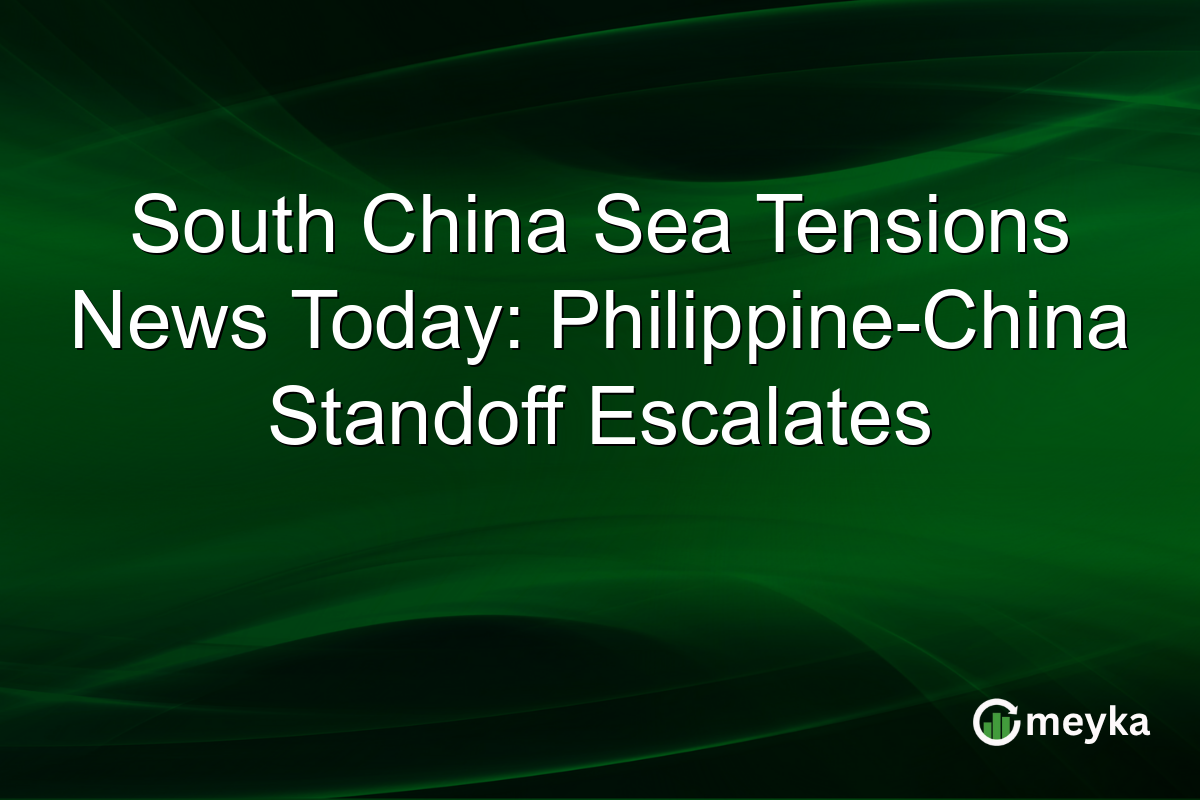South China Sea Tensions News Today: Philippine-China Standoff Escalates
The ongoing South China Sea clash of 2025 has reached a new intensity. The latest confrontation between Philippine and Chinese vessels around disputed reefs has heightened concerns about stability and security in Southeast Asia. This event is not only a regional issue but also bears significant implications for global trade and investor perceptions in the Asia-Pacific.
The Details of the Recent Confrontation
On October 13, 2025, tensions surged in the South China Sea after a standoff between Philippine and Chinese ships escalated near the contested Scarborough Shoal. This situation raised alarms about potential maritime conflict in one of the world’s busiest shipping lanes. The Philippines has accused China of aggressive maneuvers, which China dismisses as protective actions over what it claims as sovereign territory.
This ongoing clash illuminates the complex nature of the Philippines-China maritime dispute, a longstanding issue contributing to regional security concerns in Southeast Asia. The incident showcases how quickly regional disputes can flare into broader geopolitical crises.
Impact on Global Trade and Regional Security
The South China Sea is a crucial artery for global trade, handling about $3.4 trillion in commerce annually. Thus, any military tension like this poses a threat to international shipping and logistics. The recent clash could disrupt supply chains and affect markets worldwide, particularly in Asia-Pacific, by decreasing trade flow efficiency.
As the South China Sea military tension amplifies, neighboring nations and global powers alike watch closely. Regional security in Southeast Asia is delicate, with countries like Vietnam and Malaysia also having disputes with China. The possibility of conflict in these international waters has significant implications for global stability and commerce.
Diplomatic and Investor Reactions
International reactions are mixed, with calls for dialogue and restraint. The United States and ASEAN countries urge diplomatic solutions to prevent conflict escalation. Such responses highlight growing awareness of security risks and the need for strategic stability in Southeast Asia.
For investors, rising tensions mean increased risk perceptions. Some market analysts warn of potential impacts on defense and logistics sectors, anticipating shifts in policy and investment as countries might enhance their military readiness. Read more
Long-term Implications for Peace and Trade
The current South China Sea clash underscores the pressing need for a sustainable resolution to territorial disputes. The ongoing confrontations only add urgency to diplomatic efforts, which aim to establish peace and secure trade routes.
Looking forward, the region’s stability will significantly affect global economic conditions. With essential logistics and trade routes at stake, the world’s eyes remain fixed on how Southeast Asia manages these maritime tensions.
Final Thoughts
The South China Sea clash 2025 highlights the fragile balance of power and diplomacy in Southeast Asia. This latest standoff between the Philippines and China stresses the necessity for peaceful and strategic resolutions. As countries tread carefully, global trade routes and economic stability hang in the balance, affecting investor confidence and regional security dynamics. Diplomacy and international cooperation must play crucial roles in ensuring peace and stability in this volatile region.
FAQs
The incident involved a standoff between Philippine and Chinese vessels near disputed reefs, primarily around the Scarborough Shoal. It has raised concerns about regional security in Southeast Asia.
The South China Sea is vital due to its strategic trade routes, handling approximately $3.4 trillion in commerce yearly. Disruptions could affect global supply chains and markets.
Many international players, including the US and ASEAN nations, have called for restraint and dialogue to prevent the conflict from escalating, emphasizing peace and strategic stability.
Disclaimer:
This is for information only, not financial advice. Always do your research.






